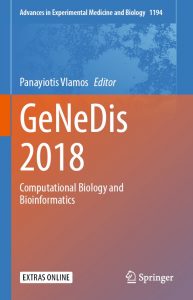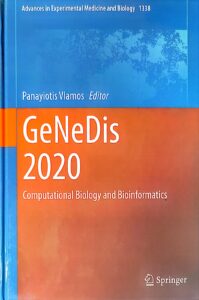Book Chapter
Publication Types:

Logical Analysis and Validation of Publications in Bioinformatics
Taking as a starting point that the only proving method in mathematics is logic, as for example is used in the logical setup of the paper (arguments, i.e. premises leading to conclusions, logical inferences) we describe a new tool for analysis and validation of publications in the field of Bioinformatics.
In striking contrast to the abundance of statistical programs and packages available to Bioinformatics researchers, no such logical tool is available to them. Therefore, the creation of such a tool is necessary; a form of expert system that may do the following procedures:
- Evaluate papers giving a score of logical consistency and completeness (i.e. how many conclusions were investigated in comparison to all possible conclusions based on the set of premises used by the researchers).
- Help researchers and academics better plan their protocols by automating the process of analysis of the premises given.
- Be able to locate and analyze arguments directly from the text of the scientific paper, from certain parts of it (e.g. the “conclusions” section, or even from the whole text, based on advanced AI algorithms.
• Provide a new standard for future publications in any form and later, in any scientific field.

Expert characteristics: implications for expert systems
While expert systems are Artificial Intelligence (AI) agents, they share many common characteristics with human experts. As technology progresses, such systems are not just able to make simple decisions following “simplistic” linear logical protocols; they “behave” as real experts in at least two ways: by demonstrating superb decision-making skills and by conforming to the social norms for expertise, i.e. they “feel” as human experts. A review of the common characteristics of human experts may have important implications for the direction of the development for such systems. Implications for bioinformatics and future research (esp. concerning the accompanying concept of “expert generalist”) are also discussed.

